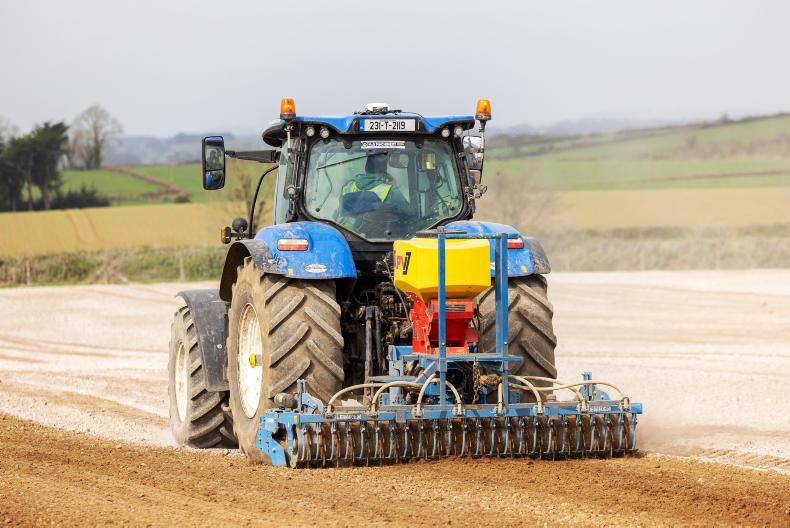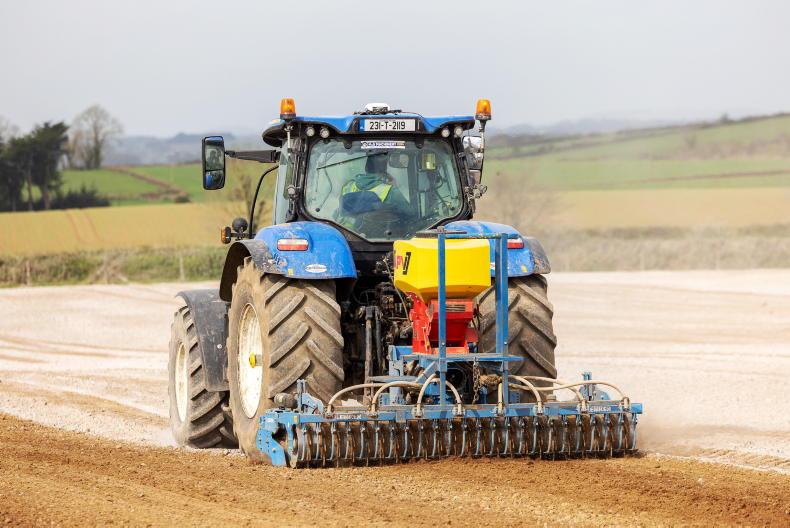Moorepark
A preview of what to expect at the Moorepark open day, which is on next Tuesday 4 July, is covered on pages 39 to 46. This year’s open day will see presentations by some international farmers and researchers, and for a flavour of some of the issues in Germany, France and Netherlands, see pages 26 and 27. It’s really interesting to note that the biggest issue for dairy farmers in Germany is the lack of profit in 2022, while a labour shortage is the biggest issue in France. Meanwhile, there is huge uncertainty around the future direction of farming in the Netherlands, France, Germany and Holland are the milk production powerhouses of Europe. It really highlights the opportunity we have in Ireland to continue to produce high-quality milk, while protecting the environment and delivering strong returns to farmers. Policymakers take note. Staying with Moorepark, I will be chairing discussions on water quality and nitrates with Ted Massey, head of nitrates at the Department of Agriculture, and Eddie Burgess of the Teagasc Water Catchments Programme. There will also be discussions with leading dairy farmers on how they are managing to cut costs of production. The talks will take place at the Arena area, between 10.30am and 2pm.
Reseeds
This years’ reseeds are a bit of a mixed bag. Anything sown up to mid-April that got rain at the right time tends to be growing well. These should have been sprayed for weeds and grazed at least once by now. Meanwhile, reseeds sown in May that got little or no rain for weeks after sowing are very patchy, with germination good in some parts and very poor in others. Did these seeds germinate and then die, or did they not germinate at all? In most cases, I would say that they just haven’t germinated at all, but that the recent rain will bring them on. Grass and white clover seeds are very tolerant, but multispecies and red clover seeds are bit more demanding. I think the best policy is to wait and see what happens and then decide if remedial action is necessary. Grass and other seeds could be broadcast and then rolled, which shouldn’t damage established plants and yet provide enough seed to soil contact for quick emergence. Recently-sown reseeds are bombing it, with plenty of moisture and heat in the ground.
Water pressure
I was on a few farms over the past week that have installed additional booster tanks with built-in pumps to increase water pressure in the dairy. The issue is that if water pressure is poor due to poor mains or well supplies, it takes too long for the wash troughs to fill after milking. It’s a particular problem when it comes to hot water, because if the flow is very slow the water will be losing too much heat before the trough fills and the wash cycle can commence. The mains or well supplies feed the booster tank, which then feeds the milking parlour with a high-flow rate. For this to work, there needs to be sufficient hot water in the first place. Installing bigger or additional hot water heaters is a good option. With more farmers looking at solar, electric water heaters are a good long-term option.
Moorepark
A preview of what to expect at the Moorepark open day, which is on next Tuesday 4 July, is covered on pages 39 to 46. This year’s open day will see presentations by some international farmers and researchers, and for a flavour of some of the issues in Germany, France and Netherlands, see pages 26 and 27. It’s really interesting to note that the biggest issue for dairy farmers in Germany is the lack of profit in 2022, while a labour shortage is the biggest issue in France. Meanwhile, there is huge uncertainty around the future direction of farming in the Netherlands, France, Germany and Holland are the milk production powerhouses of Europe. It really highlights the opportunity we have in Ireland to continue to produce high-quality milk, while protecting the environment and delivering strong returns to farmers. Policymakers take note. Staying with Moorepark, I will be chairing discussions on water quality and nitrates with Ted Massey, head of nitrates at the Department of Agriculture, and Eddie Burgess of the Teagasc Water Catchments Programme. There will also be discussions with leading dairy farmers on how they are managing to cut costs of production. The talks will take place at the Arena area, between 10.30am and 2pm.
Reseeds
This years’ reseeds are a bit of a mixed bag. Anything sown up to mid-April that got rain at the right time tends to be growing well. These should have been sprayed for weeds and grazed at least once by now. Meanwhile, reseeds sown in May that got little or no rain for weeks after sowing are very patchy, with germination good in some parts and very poor in others. Did these seeds germinate and then die, or did they not germinate at all? In most cases, I would say that they just haven’t germinated at all, but that the recent rain will bring them on. Grass and white clover seeds are very tolerant, but multispecies and red clover seeds are bit more demanding. I think the best policy is to wait and see what happens and then decide if remedial action is necessary. Grass and other seeds could be broadcast and then rolled, which shouldn’t damage established plants and yet provide enough seed to soil contact for quick emergence. Recently-sown reseeds are bombing it, with plenty of moisture and heat in the ground.
Water pressure
I was on a few farms over the past week that have installed additional booster tanks with built-in pumps to increase water pressure in the dairy. The issue is that if water pressure is poor due to poor mains or well supplies, it takes too long for the wash troughs to fill after milking. It’s a particular problem when it comes to hot water, because if the flow is very slow the water will be losing too much heat before the trough fills and the wash cycle can commence. The mains or well supplies feed the booster tank, which then feeds the milking parlour with a high-flow rate. For this to work, there needs to be sufficient hot water in the first place. Installing bigger or additional hot water heaters is a good option. With more farmers looking at solar, electric water heaters are a good long-term option.










SHARING OPTIONS